17.11.2025...Sivaji's..Untouchables News in India.by Team Sivaji.9444917060.follow us in all Social Media.(English, தமிழ் , हिंदी )
TMC accuses BJP of being ‘anti-tribal anti-dalit’ alleges rise in crimes against STs
Kolkata, (PTI) Stepping up its attack on the BJP governments at the Centre and in states, the Trinamool Congress (TMC) on Saturday accused the party of being “anti-tribal” and “anti-Dalit”, alleging that crimes against Scheduled Tribes (STs) had risen sharply in saffron party-ruled states.
In a post on its official X handle, the party claimed crimes against adivasis had shot up by a staggering 90 per cent from 6,827 cases in 2014 to 12,960 cases in 2023.
“In just one year, between 2022 and 2023, crimes against STs skyrocketed by 28.8 per cent, with the crime rate surging from 9.6 to 12.4,” the party said.
The party asked, “Where are Tribals the most unsafe? Not Bengal. But Manipur and Madhya Pradesh, both proudly governed by BJP,” alleging that BJP-ruled states accounted for the “worst atrocities” against tribal communities.
“In Madhya Pradesh’s Sidhi, a BJP leader was caught on camera commiting atrocities on a tribal youth. In Bengal, BJP’s own LoP @SuvenduWB has proudly declared that respected Tribal leaders like Debnath Hansda and Birbaha Hansda are ‘infants’ who belong under his boots,” the TMC said in the post.
“After this mountain of hate, humiliation and violence, how does the BJP dare to lecture Bengal?” the party asked, alleging that the double-engine government used adivasi lives as “political props”.
In another post, the TMC accused BJP leaders like Amit Malviya of launching “an anti-Bengali campaign”, branding him as an outsider.
“So now @BJP4India wants to decide who is ‘Bengali’ and who is not? Your UP-born @amitmalviya is the same man who insulted and questioned the Bengali language, claiming “there is, in fact, no language called Bengali”.
Accusing Malviya of repeatedly painting Bengalis as infiltrators and Bangladeshis, the TMC described BJP as a party parachuting outsiders into Bengal politics and appointing outsiders like Bhupendra Yadav and Biplab Deb as “election in-charge”.
“When it suits BJP, outsiders are leaders. When it doesn’t, even Bengalis are ousiders,” the post said.
The TMC said Bengal does not need BJP’s certificate to decide who belongs here as “your hate-driven narrative won’t work here.”
(This story has not been edited by THE WEEK and is auto-generated from PTI)
Courtesy : The Week.
টিএমসি বিজেপিকে 'আদিবাসী-বিরোধী দলিত-বিরোধী' বলে অভিযোগ করেছে, এসটি-র বিরুদ্ধে অপরাধ বেড়েছে
কলকাতা, (পিটিআই) কেন্দ্রে এবং রাজ্যগুলিতে বিজেপি সরকারগুলির উপর আক্রমণ বাড়িয়ে, তৃণমূল কংগ্রেস (টিএমসি) শনিবার দলটিকে "আদিবাসী বিরোধী" এবং "দলিত বিরোধী" বলে অভিযুক্ত করেছে, অভিযোগ করেছে যে তফসিলি উপজাতিদের (এসটি) বিরুদ্ধে অপরাধগুলি জাফরান পার্টি শাসিত রাজ্যগুলিতে তীব্রভাবে বেড়েছে।
তার অফিসিয়াল এক্স হ্যান্ডেলের একটি পোস্টে, দলটি দাবি করেছে যে আদিবাসীদের বিরুদ্ধে অপরাধ 2014 সালে 6,827টি মামলা থেকে 2023 সালে 12,960টি মামলায় 90 শতাংশ বেড়েছে।
"মাত্র এক বছরে, 2022 থেকে 2023 সালের মধ্যে, ST-এর বিরুদ্ধে অপরাধ 28.8 শতাংশ বেড়েছে, অপরাধের হার 9.6 থেকে 12.4-তে বেড়েছে," পার্টি বলেছে৷
দলটি জিজ্ঞাসা করেছিল, "কোথায় আদিবাসীরা সবচেয়ে অনিরাপদ? বাংলা নয়। কিন্তু মণিপুর এবং মধ্যপ্রদেশ, উভয়ই গর্বিতভাবে বিজেপি শাসিত," অভিযোগ করে যে বিজেপি শাসিত রাজ্যগুলি আদিবাসী সম্প্রদায়ের বিরুদ্ধে "সবচেয়ে নিষ্ঠুর নৃশংসতার" জন্য দায়ী।
"মধ্যপ্রদেশের সিধিতে, একজন বিজেপি নেতা ক্যামেরায় একজন আদিবাসী যুবকের উপর নৃশংসতা চালাতে ধরা পড়েছিল৷ বাংলায়, বিজেপির নিজস্ব LoP @SuvenduWB গর্বিতভাবে ঘোষণা করেছে যে দেবনাথ হাঁসদা এবং বীরবাহা হাঁসদার মতো সম্মানিত আদিবাসী নেতারা 'শিশু' যারা তার বুটের নীচে রয়েছে," TMC পোস্টে বলেছে৷
“এই ঘৃণা, অপমান আর হিংসার পাহাড়ের পরে, বিজেপি বাংলায় বক্তৃতা দেওয়ার সাহস কী করে?” দলটি জিজ্ঞাসা করেছিল, ডাবল ইঞ্জিন সরকার আদিবাসীদের জীবনকে "রাজনৈতিক উপায়" হিসাবে ব্যবহার করেছে বলে অভিযোগ করেছে।
অন্য একটি পোস্টে, টিএমসি অমিত মালভিয়ার মতো বিজেপি নেতাদেরকে "বাঙালি বিরোধী প্রচারণা" শুরু করার জন্য অভিযুক্ত করেছে, তাকে বহিরাগত হিসাবে চিহ্নিত করেছে।
"তাহলে এখন @BJP4India সিদ্ধান্ত নিতে চায় কে 'বাঙালি' আর কে নয়? আপনার ইউপি-তে জন্ম নেওয়া @amitmalviya সেই একই ব্যক্তি যিনি বাংলা ভাষাকে অপমান করেছিলেন এবং প্রশ্ন করেছিলেন, দাবি করেছিলেন "আসলে বাংলা বলে কোনো ভাষা নেই"।
মালভিয়াকে বারবার বাঙালিদের অনুপ্রবেশকারী এবং বাংলাদেশি হিসাবে চিত্রিত করার অভিযোগ করে, টিএমসি বিজেপিকে একটি দল হিসাবে বর্ণনা করেছে যা বাংলার রাজনীতিতে বহিরাগতদের প্যারাশুট করছে এবং ভূপেন্দ্র যাদব এবং বিপ্লব দেবের মতো বহিরাগতদেরকে "নির্বাচন ইনচার্জ" হিসাবে নিয়োগ করেছে।
“যখন এটা বিজেপির পক্ষে উপযুক্ত, তখন বহিরাগতরা নেতা। যখন তা না হয়, এমনকি বাঙালিরাও বহিরাগত, "পোস্টে বলা হয়েছে।
টিএমসি বলেছে যে এখানে কারা রয়েছে তা নির্ধারণ করতে বাংলার বিজেপির শংসাপত্রের প্রয়োজন নেই কারণ "আপনার ঘৃণা-চালিত বর্ণনা এখানে কাজ করবে না।"
(এই গল্পটি সপ্তাহ দ্বারা সম্পাদনা করা হয়নি এবং পিটিআই থেকে স্বয়ংক্রিয়ভাবে তৈরি করা হয়েছে)
সৌজন্যে: দ্য উইক
Man gets 10yrs in jail for raping, holding Dalit girl captive for 45 Days
Agra: A 36-year-old man has been sentenced to 10 years of rigorous imprisonment for raping and holding a 15-year-old Dalit girl, a Class 9 student, captive for 45 days in Aligarh district in 2017.
The court of additional district and sessions judge (Posco) Anil Kumar also imposed a fine of Rs 50,000 on the convict. Of this, Rs 25,000 has been directed to be given to the girl as compensation, special prosecution officer (SPO) Lalit Singh Pundir said on Saturday.
The prosecution said the incident took place on Aug 16, 2017. The girl’s mother reported that her daughter had gone missing after leaving home to buy milk. She was abducted by two men who took her away in an e-rickshaw and handed her over to the convict, a daily-wage labourer from the girl’s locality. In her statement, the girl said, “The man offered her a cold drink that rendered her unconscious. She later woke up in a room in Ghaziabad, where she was held captive for one and a half months, repeatedly raped and beaten. The man also used casteist slurs and threatened to kill her if she reported the matter to the police. She eventually escaped one day when he was away at work”.
The girl was taken for a medical examination and the man was sent to jail. A chargesheet was filed under IPC sections 376 (rape), 363 (kidnapping) and 366 (kidnapping or abducting a woman for illicit intercourse), along with relevant provisions of the Pocso Act and the SC/ST (Prevention of Atrocities) Act.
The court found the evidence against the man compelling and convicted him on Friday. Two other accused were given a clean chit during the investigation, the SPO said.
Courtesy : TOI
பாலியல் பலாத்காரம் செய்த நபருக்கு 10 ஆண்டுகள் சிறைத்தண்டனை, தலித் சிறுமியை 45 நாட்கள் சிறைபிடித்துள்ளார்.
ஆக்ரா: அலிகார் மாவட்டத்தில் 2017ஆம் ஆண்டு 9ஆம் வகுப்பு படிக்கும் 15 வயது தலித் சிறுமியை பாலியல் பலாத்காரம் செய்து 45 நாட்கள் சிறைபிடித்து வைத்திருந்த 36 வயது நபருக்கு 10 ஆண்டுகள் கடுங்காவல் சிறைத் தண்டனை விதிக்கப்பட்டுள்ளது.
கூடுதல் மாவட்ட மற்றும் அமர்வு நீதிமன்ற நீதிபதி (போஸ்கோ) அனில் குமார் குற்றவாளிக்கு ரூ.50,000 அபராதமும் விதித்தார். இதில், 25,000 ரூபாயை சிறுமிக்கு இழப்பீடாக வழங்க உத்தரவிடப்பட்டுள்ளதாக சிறப்பு வழக்குரைஞர் (எஸ்பிஓ) லலித் சிங் பண்டிர் சனிக்கிழமை தெரிவித்தார்.
இந்த சம்பவம் ஆகஸ்ட் 16, 2017 அன்று நடந்ததாக அரசு தரப்பு கூறியது. பால் வாங்குவதற்காக வீட்டை விட்டு வெளியே சென்ற தனது மகள் காணாமல் போனதாக சிறுமியின் தாய் தெரிவித்தார். இ-ரிக்ஷாவில் அழைத்துச் சென்ற இருவர் அவளைக் கடத்திச் சென்று சிறுமியின் பகுதியைச் சேர்ந்த தினசரி கூலித் தொழிலாளியான குற்றவாளியிடம் ஒப்படைத்தனர். சிறுமி தனது அறிக்கையில், "தன்னை மயக்கமடையச் செய்த அந்த நபர் தனக்கு குளிர்பானம் கொடுத்தார். பின்னர் அவர் காஜியாபாத்தில் ஒரு அறையில் இருந்து எழுந்தார், அங்கு ஒன்றரை மாதங்கள் சிறைபிடிக்கப்பட்டார், பலமுறை கற்பழித்து தாக்கப்பட்டார். மேலும் ஜாதி வெறித்தனமான அவதூறுகளைப் பயன்படுத்தி அந்த நபர் போலீசில் புகார் செய்தால் கொன்றுவிடுவேன் என்று மிரட்டினார்.
சிறுமி மருத்துவ பரிசோதனைக்கு உட்படுத்தப்பட்டு, அந்த நபர் சிறையில் அடைக்கப்பட்டார். IPC பிரிவுகள் 376 (கற்பழிப்பு), 363 (கடத்தல்) மற்றும் 366 (கட்டுப்பாடான உடலுறவுக்காக ஒரு பெண்ணைக் கடத்துதல் அல்லது கடத்துதல்) ஆகியவற்றின் கீழ், போக்சோ சட்டம் மற்றும் SC/ST (வன்கொடுமைகள் தடுப்பு) சட்டத்தின் தொடர்புடைய விதிகளுடன் குற்றப்பத்திரிகை தாக்கல் செய்யப்பட்டது.
அந்த நபருக்கு எதிரான ஆதாரங்கள் வலுக்கட்டாயமாக இருப்பதைக் கண்டறிந்த நீதிமன்றம் வெள்ளிக்கிழமை அவரை குற்றவாளி என்று தீர்ப்பளித்தது. விசாரணையின் போது மற்ற இரண்டு குற்றவாளிகளுக்கு க்ளீன் சிட் வழங்கப்பட்டது என்று எஸ்பிஓ கூறினார்.
நன்றி: TOI.
दलित लड़की को 45 दिनों तक बंधक बनाकर बलात्कार करने पर व्यक्ति को 10 साल की जेल
आगरा: 2017 में अलीगढ़ जिले में कक्षा 9 की छात्रा 15 वर्षीय दलित लड़की के साथ बलात्कार करने और उसे 45 दिनों तक बंधक बनाकर रखने के लिए 36 वर्षीय एक व्यक्ति को 10 साल के कठोर कारावास की सजा सुनाई गई है।
अतिरिक्त जिला एवं सत्र न्यायाधीश (पॉस्को) अनिल कुमार की अदालत ने दोषी पर 50,000 रुपये का जुर्माना भी लगाया. विशेष अभियोजन अधिकारी (एसपीओ) ललित सिंह पुंडीर ने शनिवार को कहा कि इसमें से 25,000 रुपये लड़की को मुआवजे के रूप में देने का निर्देश दिया गया है।
अभियोजन पक्ष ने कहा कि घटना 16 अगस्त, 2017 को हुई थी। लड़की की मां ने बताया कि उनकी बेटी दूध खरीदने के लिए घर से निकलने के बाद लापता हो गई थी। उसका दो लोगों ने अपहरण कर लिया था, जो उसे एक ई-रिक्शा में ले गए और उसे दोषी को सौंप दिया, जो लड़की के इलाके का एक दिहाड़ी मजदूर था। लड़की ने अपने बयान में कहा, "उस आदमी ने उसे कोल्ड ड्रिंक दी जिससे वह बेहोश हो गई। बाद में वह गाजियाबाद के एक कमरे में जागी, जहां उसे डेढ़ महीने तक बंधक बनाकर रखा गया, बार-बार बलात्कार किया गया और पीटा गया। उस आदमी ने जातिसूचक गालियां भी दीं और पुलिस में मामले की शिकायत करने पर जान से मारने की धमकी दी। आखिरकार वह एक दिन भाग निकली जब वह काम पर गया हुआ था।"
लड़की को मेडिकल जांच के लिए ले जाया गया और आदमी को जेल भेज दिया गया। पोक्सो अधिनियम और एससी/एसटी (अत्याचार निवारण) अधिनियम के प्रासंगिक प्रावधानों के साथ आईपीसी की धारा 376 (बलात्कार), 363 (अपहरण) और 366 (अवैध संभोग के लिए एक महिला का अपहरण या अपहरण) के तहत आरोप पत्र दायर किया गया था।
अदालत ने उस व्यक्ति के खिलाफ सबूतों को ठोस पाया और शुक्रवार को उसे दोषी ठहराया। एसपीओ ने कहा कि जांच के दौरान दो अन्य आरोपियों को क्लीन चिट दे दी गई।
साभार: टीओआई.
Mirzapur News: Government serious about oppression and exploitation of Dalit community
Jigna. Dr. Lalaji Prasad Nirmal, Chairman of the Natural Disaster Management Inquiry Committee, who holds the rank of Minister of State, addressed a gathering in Bihasra Bazaar on Saturday, stating that the Chief Minister has implemented numerous public welfare schemes for the development and upliftment of the community. Advertisement: 0:02
He stated that the government is serious about oppression and exploitation of Dalit community. He said that it is best for the community to remain with the BJP. The Chairman stated that he has donated money from his own funds for the construction of a road in Bihasra.
The meeting was conducted by Lalji Verma. Deepak Verma, Vinay Kumar Singh, Ajay Jaiswal, Lal Saheb, Raj Mishra, Indrajit Verma, Shyam Babu Verma, Sanjay Sonkar, Sunil Verma, etc. were present.
Dalits are free from fear, land encroachments are no longer prevalent under Yogi’s rule: Dr. Nirmal
Vindhyachal. The BJP government is empowering Dalits socially, economically, and politically. Dalits are completely free from fear under Yogi’s rule. Their lands are no longer being illegally encroached upon.
Dr. Lalji Prasad Nirmal, Member of the Legislative Council/Chairman of the Natural Disaster Management Inquiry Committee, Uttar Pradesh, stated this in a press conference held at the Ashtabhuja Dak Bungalow auditorium on Saturday. He stated that the Chief Minister has accomplished significant work for Dalits.
As a result of this strictness, no gangster or mafia dares to encroach upon the land of Dalits or those from the marginalized communities. Now, Dalit and backward class employees recruited through outsourcing in the state will receive the benefits of reservation.
Dr. Nirmal stated that the Chief Minister will inaugurate the world-class Dr. Bhimrao Ambedkar Memorial and Cultural Center being built in Lucknow on April 14, 2026, on the occasion of Baba Saheb’s birthday.
Courtesy: Hindi News
Madras HC bins plea claiming ownership of prime land housing Adi Dravidar hostel
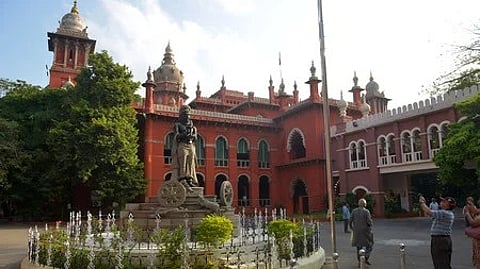
CHENNAI: The Madras High Court has dismissed a petition that claimed ownership and sought handover of a prime piece of land in the heart of the city at Nandanam on which a hostel and residential school run by the Tamil Nadu Adi Dravidar and Tribal Welfare department has been functioning since 1951.
Justice G K Ilanthiraiyan dismissed the petition which was filed by S Rajalakshmi of T Nagar in Chennai. She stated that the land measuring 6 grounds and 2,232 sq ft was originally owned by her grandfather Y Venkanna Chowdry and she inherited it from her father Sambhu Prasad Rao but she could not take possession even after a court decree. In the meantime, the Adi Dravidar and Tribal Welfare Department had constructed the school and hostel on the land.
Additional Advocate General P Kumaresan submitted that the survey number 3884/4 was manipulated by the petitioner to show that the land in the survey number belongs to her by hiding the actual survey number of 3884/1.
The petitioner had stated her representation to the department seeking to return the land was rejected on May 30, 2019. Challenging this, she filed the writ petition.
The AAG noted that an Adi Dravidar hostel was running from 1951 and GTR school from 1980 on the subject land. He informed the court that her representation was rejected only after conducting a detailed inquiry.
The judge, in the recent order, noted that the land was given to the department as donation by the petitioner’s grandfather, proved from revenue records produced by the AAG.
He pointed out that a suit filed by the petitioner’s father Rao seeking the department to pay rent for the hostel was dismissed in 2002 by the Small Causes Court, Chennai. Further, Rao had already sold four grounds and 1,324 sq ft in R S No 3884/4 to a person and a sale deed was registered in 1966.
“The petitioner did not produce any original documents during inquiry conducted by the respondents. Therefore, the order passed by the Director of Tribal Welfare is clear that the subject land comprised in R S No 3884/4 does not belong to the petitioner,” the judge said in the order.
முதன்மை நிலமான ஆதி திராவிடர் விடுதிக்கு உரிமை கோரும் மனுவை சென்னை உயர் நீதிமன்றம்
பாட நிலத்தில் 1951 முதல் ஆதி திராவிடர் விடுதியும், 1980 முதல் ஜிடிஆர் பள்ளியும் இயங்கி வருவதாக AAG குறிப்பிட்டது.

சென்னை உயர்நீதிமன்றம்.(கோப்பு படம் | எக்ஸ்பிரஸ்)
ஆர் சிவகுமார்
புதுப்பிக்கப்பட்டது:
16 நவம்பர் 2025, காலை 8:45
2 நிமிடம் படித்தது
TNIE ஐ நம்பகமான ஆதாரமாகச் சேர்க்கவும்

சென்னை: தமிழ்நாடு ஆதி திராவிடர் மற்றும் பழங்குடியினர் நலத்துறையின் கீழ் இயங்கி வரும் விடுதி மற்றும் குடியிருப்புப் பள்ளியின் நந்தனம் நகரின் மையப் பகுதியில் 1951-ம் ஆண்டு முதல் இயங்கி வரும் முக்கிய நிலத்துக்கு உரிமை கோரிய மனுவை சென்னை உயர் நீதிமன்றம் தள்ளுபடி செய்தது.
சென்னை தி.நகரைச் சேர்ந்த எஸ்.ராஜலட்சுமி என்பவர் தாக்கல் செய்த மனுவை நீதிபதி ஜி.கே.இளந்திரையன் தள்ளுபடி செய்தார். 6 மைதானம் மற்றும் 2,232 சதுர அடி நிலம் முதலில் தனது தாத்தா ஒய் வெங்கண்ணா சவுத்ரிக்கு சொந்தமானது என்றும், அதை தனது தந்தை சாம்பு பிரசாத் ராவிடமிருந்து தான் பெற்றதாகவும், ஆனால் நீதிமன்ற உத்தரவுக்குப் பிறகும் தன்னால் கையகப்படுத்த முடியவில்லை என்றும் அவர் கூறினார். இதனிடையே அந்த நிலத்தில் ஆதி திராவிடர் மற்றும் பழங்குடியினர் நலத்துறை சார்பில் பள்ளி மற்றும் விடுதி கட்டப்பட்டது.
கூடுதல் அட்வகேட் ஜெனரல் பி.குமரேசன், 3884/1 என்ற உண்மையான சர்வே எண்ணை மறைத்து, சர்வே எண்ணில் உள்ள நிலம் தனக்குச் சொந்தமானது எனக் காட்டுவதற்காக, 3884/4 சர்வே எண் மனுதாரரால் கையாளப்பட்டது.
நிலத்தை திருப்பித் தரக் கோரி துறையிடம் அளித்த மனு 2019 மே 30 அன்று நிராகரிக்கப்பட்டதாக மனுதாரர் கூறியிருந்தார். இதை எதிர்த்து அவர் ரிட் மனு தாக்கல் செய்தார்.
பாட நிலத்தில் 1951 முதல் ஆதி திராவிடர் விடுதியும், 1980 முதல் ஜிடிஆர் பள்ளியும் இயங்கி வருவதாக AAG குறிப்பிட்டது. விரிவான விசாரணைக்கு பின்னரே அவரது பிரதிநிதித்துவம் நிராகரிக்கப்பட்டது என்று அவர் நீதிமன்றத்தில் தெரிவித்தார்.
நீதிபதி, சமீபத்திய உத்தரவில், மனுதாரரின் தாத்தா மூலம் நிலம் துறைக்கு நன்கொடையாக வழங்கப்பட்டது, ஏஏஜி தயாரித்த வருவாய் பதிவேடுகளில் இருந்து நிரூபிக்கப்பட்டுள்ளது என்று குறிப்பிட்டார்.
விடுதிக்கான வாடகையை திணைக்களம் வழங்கக் கோரி மனுதாரரின் தந்தை ராவ் தாக்கல் செய்த வழக்கு 2002 ஆம் ஆண்டில் சென்னை சிறு வழக்குகள் நீதிமன்றத்தால் தள்ளுபடி செய்யப்பட்டதை அவர் சுட்டிக்காட்டினார். மேலும், ராவ் ஏற்கனவே ஒரு நபருக்கு R S எண் 3884/4 இல் நான்கு மைதானங்கள் மற்றும் 1,324 சதுர அடிகளை விற்றுள்ளார் மற்றும் ஒரு விற்பனை பத்திரம் 1966 இல் பதிவு செய்யப்பட்டது.
"மனுதாரர், எதிர்மனுதாரர்கள் நடத்திய விசாரணையில் அசல் ஆவணங்கள் எதையும் சமர்ப்பிக்கவில்லை. எனவே, பழங்குடியினர் நல இயக்குனர் பிறப்பித்த உத்தரவில், ஆர்.எஸ். எண் 3884/4 இல் உள்ள பொருள் நிலம் மனுதாரருக்கு சொந்தமானது அல்ல" என்று நீதிபதி உத்தரவில் கூறினார்.
Tribal martyrs memorial in Telangana draws visitors after facelift
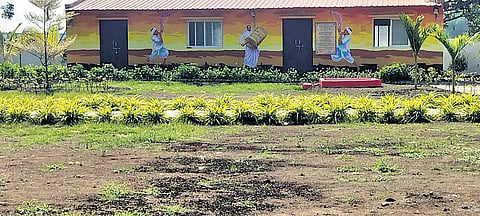
ADILABAD: For years, people were permitted only to offer prayers at the Indravelli Martyrs’ statue. Today, the once-restricted site has been transformed into a full-fledged Smruthi Vanam (Memorial Park) in Adilabad district, emerging as a new stop for history enthusiasts.
Those heading towards Mancherial and Asifabad from Adilabad are now pausing at the memorial, spending time at the site and learning about the legacy of the Indravelli movement.
The rooms adorned with vibrant paintings showcasing Adivasi culture and traditions have become a key attraction.
Adivasi Sena state president Kova Daulath Rao said the Congress government developed the Smruthi Vanam and filled the museum walls with tribal artwork to honour the sacrifices of those who fought in the movement.
He noted that minister Seethakka paid official tributes on April 20 this year — the first homage in 44 years.
After coming to power, Chief Minister A Revanth Reddy allocated Rs 1 crore for upgrading the martyrs’ site. He visited the spot in February 2024, laid the foundation stone, and addressed a public gathering. The Smruthi Vanam was inaugurated in September by minister Jupally Krishna Rao.
On April 20, 1981, police opened fire on a gathering of Adivasis on the outskirts of Indravelli mandal headquarters, killing 13 people on the spot.
After a struggle spanning 44 years, tribal communities say they have finally received long-awaited recognition at the memorial.
Remembering the promise of Jharkhand at 25
Jharkhand’s 25 years of statehood should be more than a ceremonial moment and call for reflection. The state must recall its leaders not as distant icons but as voices of an unfinished struggle, and return to the movement’s core promise of a Jharkhand where its people can live with dignity, justice, and equality.
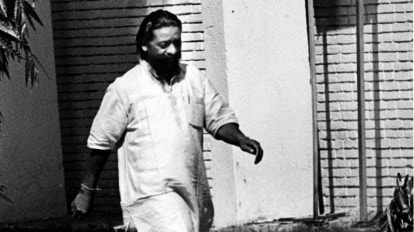 Shibu Soren’s JMM shifted the statehood movement’s geography, imagination. (Archive)
Shibu Soren’s JMM shifted the statehood movement’s geography, imagination. (Archive)On November 15, 2025, Jharkhand stepped into its silver jubilee year. The Morabadi ground in Ranchi held a grand celebration, made even more symbolic because this year marked the 150th birth anniversary of Birsa Munda, the most iconic figure of Adivasi resistance in the subcontinent. Yet, anniversaries, particularly those staged with spectacle, often risk obscuring the deeper histories that made them possible. As the state celebrates, it must also pause. Jharkhand’s foundation day is not merely an occasion of pride. It is a moment of remembrance and reflection, a reminder of promises made and promises still deferred.
The Jharkhand movement’s arc stretches far beyond the territorial reorganisation of the year 2000. Scholars often locate its origins in centuries of Adivasi mobilisations against the diku, a term used locally for exploitative outsiders. But it was the formation of the Adivasi Mahasabha in 1938, and its transformation under the charismatic leadership of Jaipal Singh Munda, that gave the movement a recognisable political centre. He articulated a demand for autonomy that sought not separatism, but protection from predatory external forces and dignity for people long pushed to the margins.
A new chapter began in 1973 with the formation of the Jharkhand Mukti Morcha (JMM) led by Shibu Soren along with communist leader A K Roy and Kudmi leader Binod Bihari Mahto. JMM shifted the movement’s geography and imagination. The political epicentre moved from the Adivasi heartlands of Chotanagpur and Santhal Pargana to the industrial belts of Jamshedpur, Bokaro and Dhanbad. Here, Adivasi identity intertwined with the struggles of mine workers and industrial labourers. JMM infused the movement with a class dimension, widening its social base and grounding the Jharkhand question, not only in cultural rights but also in economic exploitation.
This momentum intensified with the formation of the All Jharkhand Students Union (AJSU) in 1986 under Nirmal Mahto, partly modelled on the All Assam Students Union. AJSU’s assertive politics revitalised the movement and brought a new generation into its fold, giving it organisational strength and youthful energy. Meanwhile, the Bharatiya Janata Party also began extending conditional support, although it reframed the demand as Vananchal rather than Jharkhand. This reflected its ideological position that Adivasis are essentially vanvasis, forest dwelling Hindus. The relabelling was widely resisted and underscored the distinctiveness of the Jharkhand movement. It was rooted in regional identity with an Adivasi core but capacious enough to include other marginalised groups. It resembled a Bahujan imagination rather than exclusionary sons of the soil politics. The movement combined recognition, redistribution and representation, seeking not just a state but a social transformation.
Jharkhand has made undeniable progress in infrastructure, poverty reduction, education and healthcare, yet the deeper structural challenges remain stark. Development-induced displacement continues to unsettle Adivasi communities, outmigration has reached troubling levels, and social tensions have intensified. The most visible flashpoint is the conflict between Adivasis and Kudmis over the demand for Scheduled Tribe status, a dispute that has unsettled long-standing alliances.
Meanwhile, the forces the movement sought to resist, including exploitative capital, state heavy-handedness and majoritarian cultural homogenisation, appear more emboldened than before. Adivasis continue to endure daily humiliations delivered through state institutions and dominant groups. The Jharkhandi identity, conceived as a safeguard for the marginalised, is struggling to live up to its original promise.
Jharkhand’s 25 years of statehood should be more than a ceremonial moment and call for reflection. The state must recall its leaders not as distant icons but as voices of an unfinished struggle, and return to the movement’s core promise of a Jharkhand where its people can live with dignity, justice, and equality. As festivities unfold and proclamations echo across Jharkhand, the occasion invites a gaze beyond the spectacle. Silver jubilees are not merely markers of time but mirrors, and Jharkhand must find the courage to look into that mirror with honesty.
The writer is an Academic Fellow and visiting faculty at the National Law School of India University, Bengaluru
Marxist historians ignored Pasi, Dalit, tribal heroes of freedom struggle: Rajnath Singh
Addressing the gathering, Rajnath Singh said that in history books, the contribution of only a select few families in the freedom struggle has been narrated. Dalit, Adivasi (tribal) and Pasi leaders were largely neglected, he added. Singh also criticised the previous government for overlooking the role of Pasi leaders in the freedom struggle.
Defence minister Rajnath Singh on Sunday said Marxist historians and previous governments deliberately ignored the contributions of Dalit, Pasi and Adivasi (tribal) communities to India’s freedom struggle, keeping their stories out of mainstream history. He was speaking at Pasi Swabhiman Diwas, organised to mark the martyrdom of Uda Devi Pasi at Pasi Crossing in Vrindavan Colony, Lucknow. Chief minister Yogi Adityanath and senior BJP leaders were present.

Singh said history books narrate the efforts of only a few families. “Dalit, Adivasi and Pasi leaders were largely neglected,” he said, adding that earlier governments overlooked the role of Pasi icons. He stated that the current state government had given recognition to such leaders.
“CM Yogi Adityanath has given honour to leaders of the freedom struggle,” he said.
Listing Pasi figures associated with the revolt of 1857, Singh said Uda Devi proved that India’s daughters could defend the nation with courage. “Uda Devi proved that if anyone dares to insult the nation, the daughters of India can face them with unwavering courage,” he said. “British officer captain Dawson is said to have removed his hat before her mortal remains as a mark of respect. Singh said she was a matter of pride for the community and the country.”
He said Uda Devi challenged both British rule and the social structure that had marginalised her community. “Her saga must be remembered for two reasons. First, it teaches self-respect. Second, it highlights the role of women in the freedom struggle,” he said. Singh added that she mobilised Dalit women during the uprising. “Today, women are protecting the nation from Siachen to the oceans,” he said.
Referring to recent operations, Singh said, “In Operation Sindoor, women pilots and soldiers played vital roles in counter-terror actions in Pakistan and PoK. Every daughter of India carries the spirit of Uda Devi.”
Explaining beliefs around the community’s origins, he said “Pa” means “to hold” and “Si” means “sword,” making Pasi mean “sword-wielder.” He added that a 1971 document recorded another belief that the community emerged from the sweat of Lord Parashurama, who entrusted them with protecting cows. He said compassion, courage and duty had defined the community from 1857 to movements such as the Awadh Kisan Sabha Andolan.
“The Pasi Empire gets little space in textbooks despite ruling long before Emperor Ashoka,” the defence minister said. He mentioned Maharaja Bijli Pasi, Maharaja Satan Pasi, Maharaja Lakhan Pasi, Maharaja Suheldev, Maharaja Dhaldev, Raja Gangabaksh Rawat, Jhalkari Bai, Avanti Bai and Mahaveeri Devi. “These names should be written in golden letters,” he said. Singh recalled that the Vajpayee government issued a postage stamp in honour of Maharaja Bijli Pasi in 2000.
Congratulating the chief minister, Singh said the state government had included Pasi heroes in the academic curriculum. He said a memorial for Maharaja Suheldev had been built in Bahraich and another for Maharaja Bijli Pasi was being constructed in Lucknow. He added that the observance of “Tribal Pride Day” and “Tribal Pride Year” had brought attention to tribal icons. Sites linked with Baba Saheb Bhimrao Ambedkar have been developed as the “Panch Teerth”, he said.
Honouring Dalit icons would help strengthen social unity, he said. Singh added that the prime minister had worked to ensure representation for marginalised groups. “Kamlesh Paswan, a member of the Pasi community, serves as a Union minister,” he said.
He added that both Union and state governments had expanded welfare services for SC, ST, OBC and other disadvantaged groups for more than a decade. Singh recalled Baba Saheb’s view that democracy cannot flourish where the social system lacks fairness and said governments were committed to ensuring equal participation in national development.
Uda Devi’s statue will inspire future generations: Brajesh Pathak
Deputy chief minister Brajesh Pathak said unveiling the Uda Devi statue in Lucknow was a moment of pride for the Pasi community and would motivate children, youth, women and elders.
Union minister Kamlesh Paswan said losing one’s identity and history would raise questions for future generations. He said Uda Devi’s courage and sacrifice would remain an important chapter in India’s history and praised efforts by the Uttar Pradesh government and the prime minister to bring this history forward.
16 November,2025 12:14 PM IST | Mumbai | Sumedha Raikar Mhatre
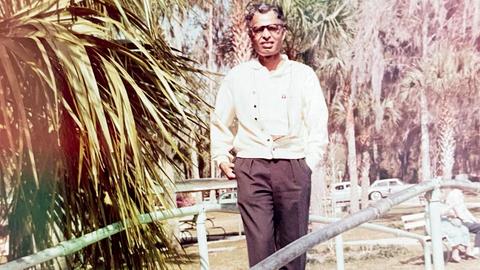
A new Marathi volume titled Krantdarshi Dr M N Wankhede highlights his impact

The Ambedkarite thinker, fierce essayist, and mentor of the Dalit rebellious canon is, of course, known in academic circles, but not in the national or regional consciousness. It is to him that the arc of Marathi Dalit writing (and its translations) can be traced. From Baburao Bagul's Sood (whose foreword he wrote) through Daya Pawar's Baluta, Laxman Mane's Upara, Baby Kamble's Jina Amucha, and Urmila Pawar's Aaydaan, the genre found its most forceful voice in memoir and autobiography - work that today stands translated in several foreign languages and remains a matter of pride in Maharashtra. Behind this lineage stood Wankhede, who wrote, spoke, and organised around the need for rebellious literature that would name oppression and speak in its own cadence. His years were few, but his impact was decisive: through his essays, speeches, institution-building, travel and study abroad, and his work at Aurangabad's (now Sambhajinagar) Milind College, he shaped the very definition of rebellion in letters.
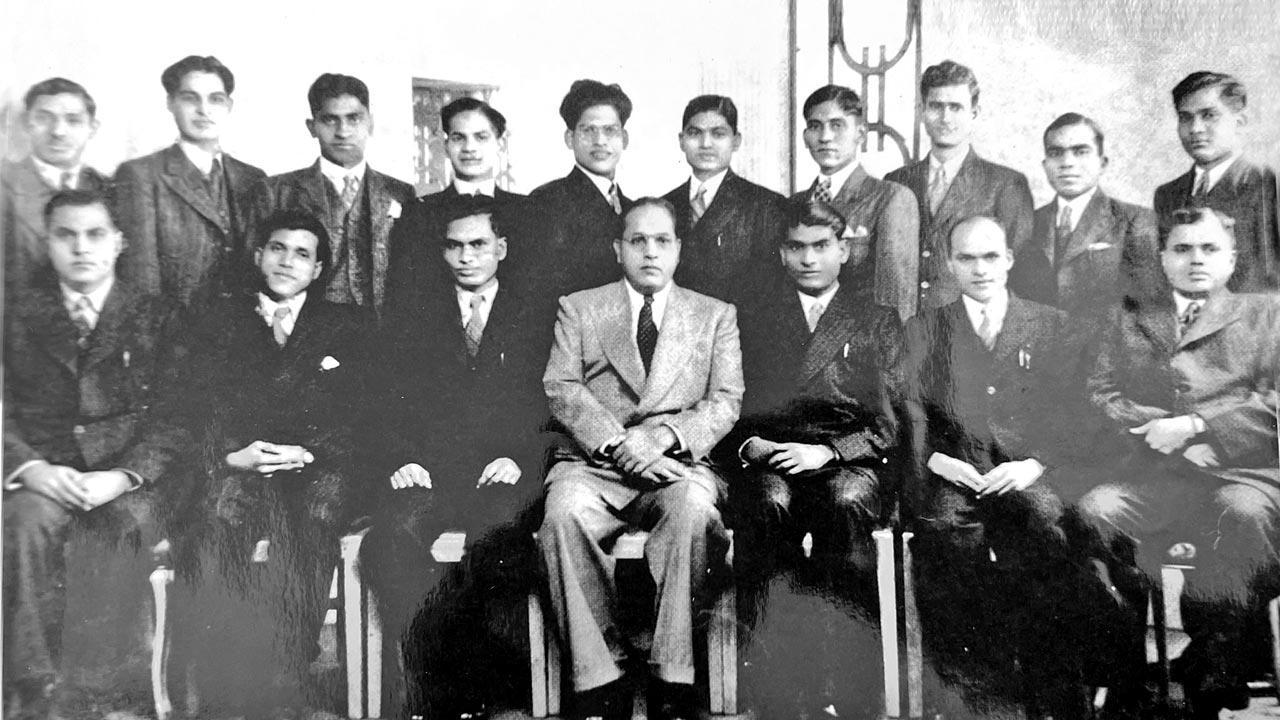
A new Marathi volume titled Krantdarshi Dr M N Wankhede - which includes the scholar's select English quotes - edited by senior litterateur Yashwant Manohar, brings together some 60 scholars from across Maharashtra. Manohar excerpts from Wankhede's speeches, public interviews, and English writings. He, in fact, calls Dr Wankhede "Maharashtra's Sartre", whose influence, he notes, has never faded. The collection situates the aesthetics of Dalit literature within a global frame, where Wankhede's thought carries the existentialism of total revolution, anchored in Dr Ambedkar's foundational sadvivekvaad - the reasoned humanism that defined his worldview.
The volume highlights Wankhede's profound grasp of Dr Ambedkar's teachings and his eloquent insistence that Dalits must write fearlessly from their own lived experience. He challenged inherited heroes of history and myth, urging Dalit writers to create their own protagonists - shaped by their time and struggle. For him, the Dalit quest was inseparable from the human one.
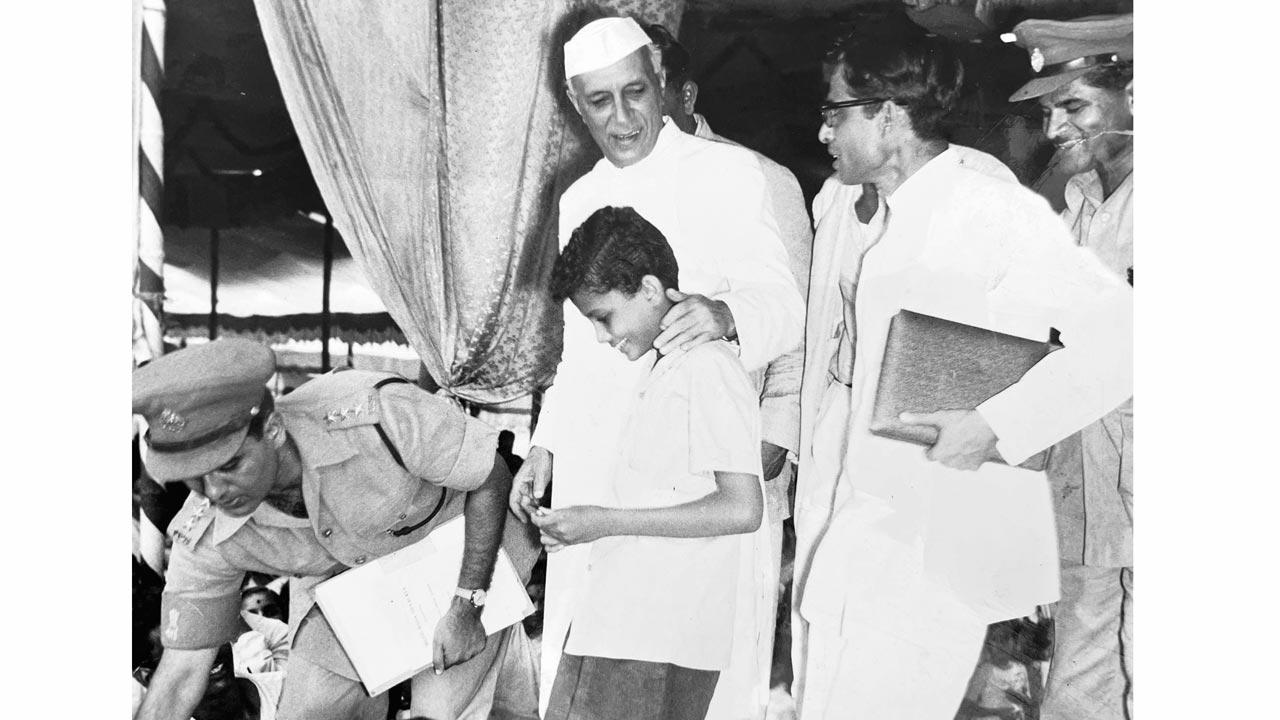
Dr Wankhede went to the UK on an Indian government scholarship, and later became a Fulbright scholar in the US, completing his PhD at the University of Florida on "Walt Whitman and Tantrism: A Comparative Study." There, he witnessed the African American civil rights movement firsthand, profoundly shaping his understanding of social justice and equality.
As a scholar of English literature, deeply influenced by Martin Luther King Jr, Langston Hughes, Walt Whitman, and James Baldwin, he urged Dalit youth to pursue education as a tool for transformation. He felt fortunate to have been chosen by Dr Ambedkar to head the English department at Milind College, the institution Ambedkar founded, hoping others would follow this dnyÄÂnmÄÂrga, enabling them to tell their stories in their own idioms. Returning to Sambhajinagar, he brought insights from the Black Panther movement in the US, transforming Milind College into a crucible of cultural resurgence.
As Arjun Dangle, Dalit Panther leader, wrote in the new volume - and reiterated at the Mumbai centenary gathering - "revisiting Dr Wankhede is vital today", as the values sustaining our welfare state are under threat. In his time, Wankhede urged writers to practise vidroh (rebellion) against the caste establishment. That call resonates till date. Dangle notes that certain figures in history remind us of the need for counter-revolution; Wankhede is one such defining figure.
Many writers of the Dalit vidrohi canon remember Dr Wankhede with deep gratitude, acknowledging that much of their own writing owes its inspiration to him. Many hail from Marathwada, especially Milind College, where Wankhede was either their guru or contemporary; a vatvriksha whose canopy sheltered writers, translators, and theatre-cinema-art creators. The volume showcases the Dalit intelligentsia across generations and geographies, including ideologue-thinker Janardan Waghmare (Latur), Hindi translator Aruna Lokhande (Sambhajinagar), educationist Chetana Sonkamble (Kolhapur), and poet-writer Vandana Mahajan from Mumbai.
Literary critic and editor of Phule-Ambedkari Vangmaykosh, Dr Mahendra Bhaware, situates Wankhede at the heart of Maharashtra's cultural renaissance - a force that introduced the revolutionary intensity of African American writing. Tapping into the moral and aesthetic upheaval after the 1956 mass conversion to Buddhism, Wankhede urged Dalits to question all entrenched powers - god and religion included. He institutionalised his ideas through journals such as Asmita, Asmitadarsh, Milind Magazine, and Milind Manuscript Fortnightly, building platforms for new voices. Dalit theatre also took shape under his patronage: he directed Yugyatra, the first Dalit play, performed in Ambedkar's presence at Sambhajinagar and again before a massive audience at Nagpur's Dhammadeeksha in 1956.
Wankhede's engagement with Marathi and Indian literary discourse was balanced: never an extremist, he was always open to new ideas. In the preface to Sood, he initially described Dalit literature as Dalit expression fuelled by anger against perpetrators, but later adopted a more nuanced diverse construct. How many public intellectuals are willing to revisit and correct their own definitions?
Dr Mangesh Bansod, professor at the University of Mumbai's Academy of Theatre Arts and an active member of the centenary celebrations, notes that Wankhede was a towering figure who refused to let narrowness or hatred shape the canon he built. He remained in dialogue with scholars of all persuasions, and his engagement with non-Dalit thinkers reflected the intellectual openness highlighted in the Krantdarshi volume through reflections by samavichari such as R G Jadhav, M P Rege, and V L Kulkarni.
Renowned reformist writer-critic M B Chitnis - who shared Wankhede's belief that Dalit literature must be intellectually rigorous yet emotionally fearless - observed that any new literature needs a living tradition to grow from. "No one can learn music just by hearing the koel sing," he said. "A neo-Buddhist writer will naturally borrow the forms and genres of the middle class, but only when he/she stops feeling culturally inferior will the writing come alive." Chitnis agreed with Wankhede that creative expression must be unapologetic.
I look forward to a second edition of this volume, one that might bring in photographs and glimpses of Wankhede's travels and engagement across India, his meetings with leaders like Ambedkar, Nehru, and Indira Gandhi, and the voices of non-Dalit thinkers who admired him - so that readers can feel, not just read, the sweep of his world.
Sumedha Raikar-Mhatre is a culture columnist in search of the sub-text. You can reach her at sumedha.raikar@mid-day.com





















Comments
Post a Comment